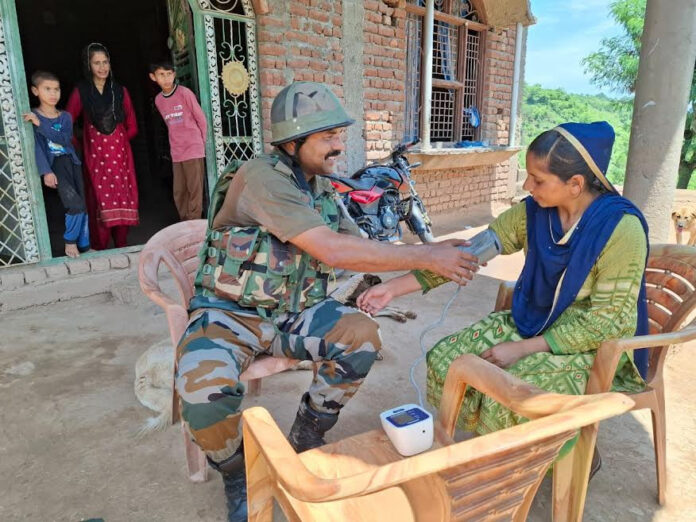DOGRA HERALD BUREAU
Rajouri, Dec 6
The Indian Army has extended its healthcare services to remote regions of Rajouri district through mobile medical patrols, offering vital medical assistance to residents of Thill, Pathi, Parat, Tolda Gala, and Chakalsalta. This initiative primarily aimed to address the medical needs of these villages, especially the Gujjar and Bakkarwal communities, who face significant challenges in accessing mainstream healthcare due to their isolated geographic location and difficult terrain. Equipped with essential medical supplies, the mobile patrols provided on-the-spot healthcare services, including basic health assessments, treatment for common ailments, and distribution of medicines.
The initiative also focused on preventive healthcare by offering immunizations and spreading awareness about hygiene, nutrition, and disease prevention. Special attention was given to women’s healthcare, addressing their unique health concerns in areas with limited medical infrastructure.
The efforts brought significant relief to these communities, who often suffer from higher morbidity and mortality rates due to disparities in healthcare access. The medical patrols not only treated illnesses but also emphasized long-term health improvements through education on preventive measures. The local population responded with overwhelming gratitude.
Many villagers expres-sed their appreciation for the Indian Army’s commitment to improving their quality of life by bringing much-needed healthcare directly to their doorsteps. A total of 123 villagers benefitted from this initiative, highlighting its immediate impact on the community.
Beyond its medical benefits, the initiative has played a crucial role in fostering trust and strengthening the relationship between the Indian Army and the local communities. By addressing critical healthcare needs, the Army demonstrated its dedication to the welfare of people living in remote and underserved areas.
The mobile medical patrols underscore the Indian Army’s role not just as a defender of the nation but also as a key contributor to social and humanitarian causes.
Initiatives like these not only alleviate immediate healthcare challenges but also pave the way for long-term community development and resilience in remote regions.






























